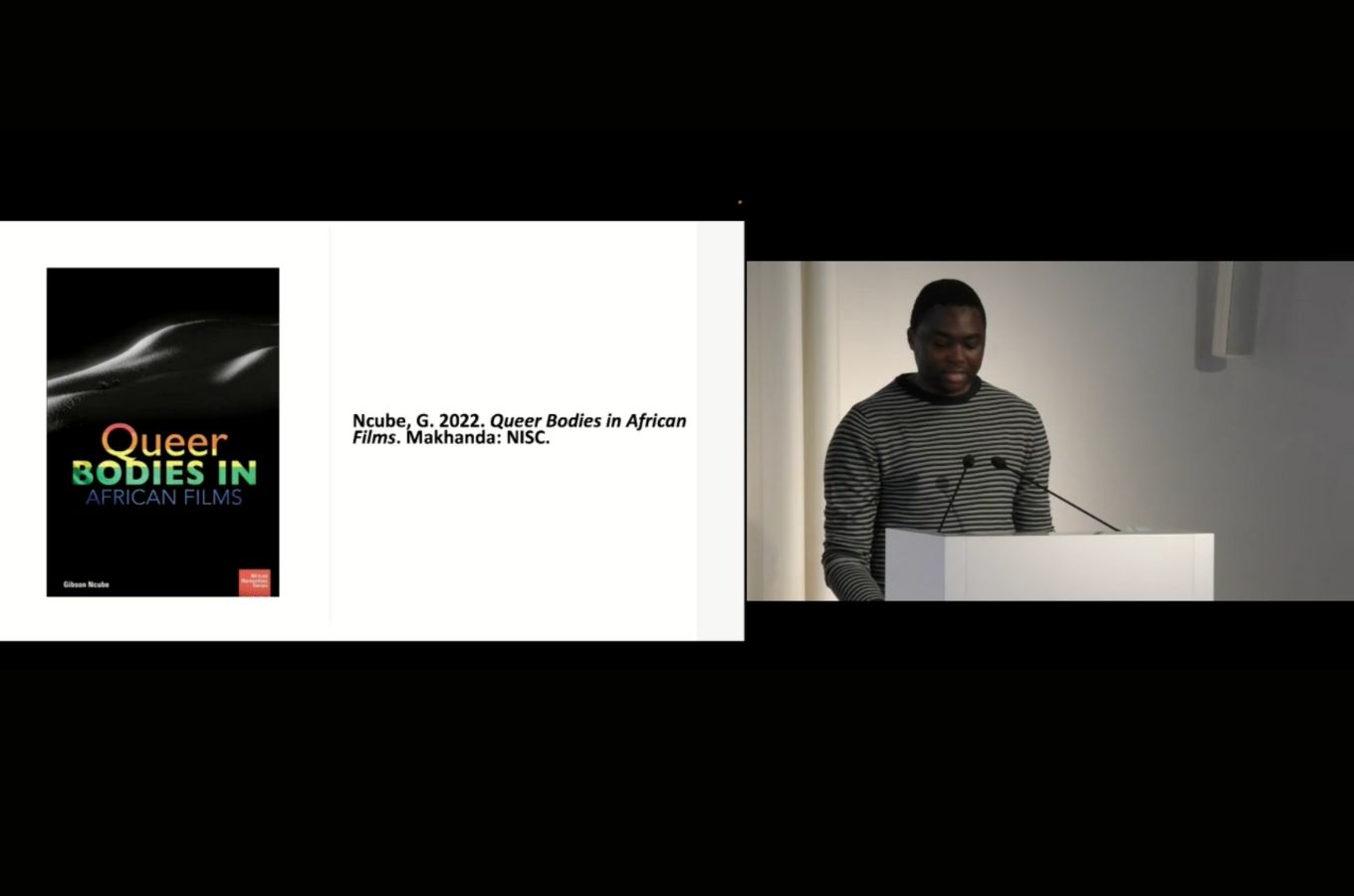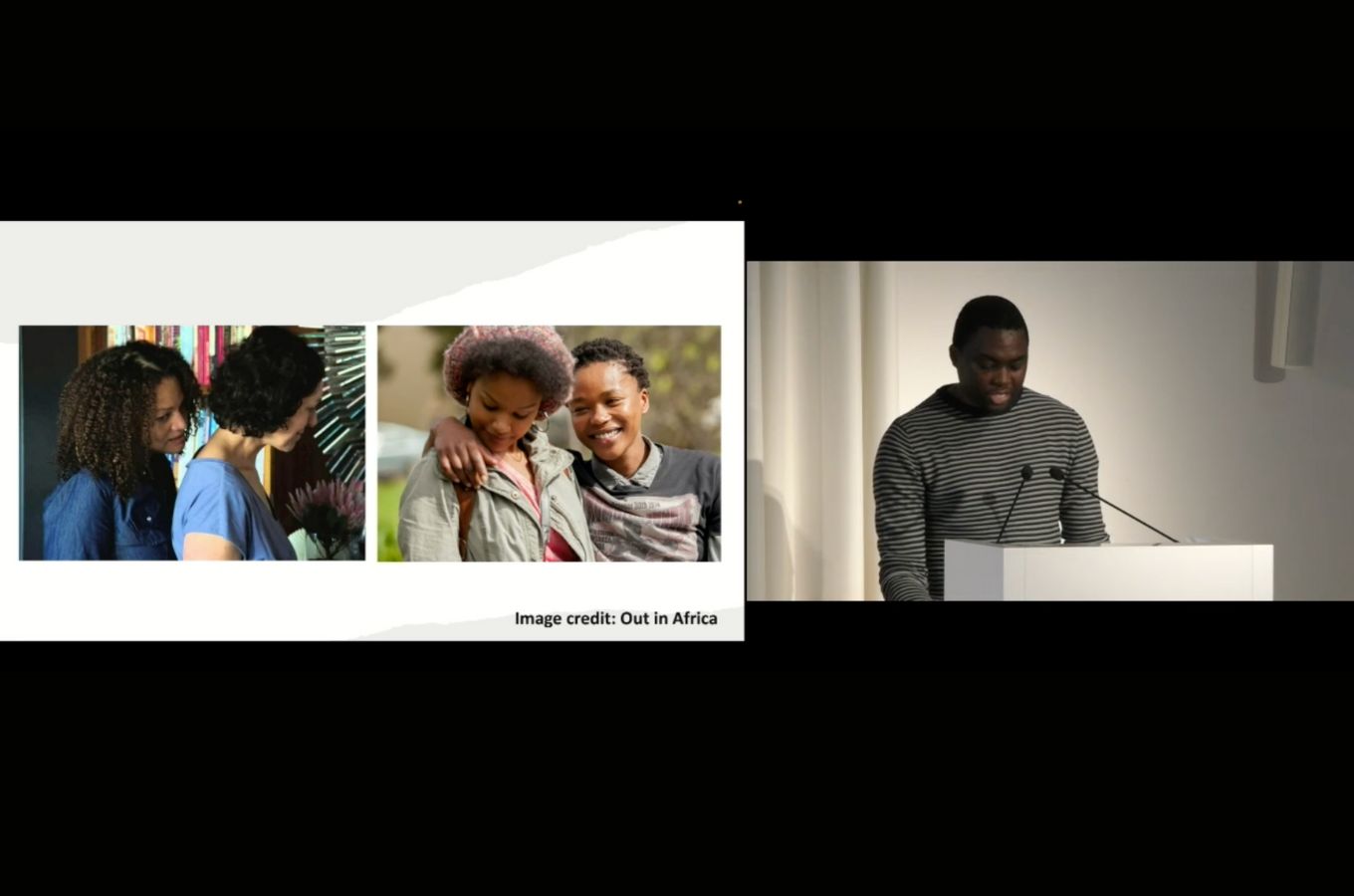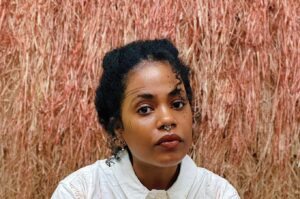
We recently came across this video of Gibson Ncube’s lecture in Berlin and thought it was worth sharing. The title of the lecture is “The Filmed Body as a Model of Understanding African Queer Lived Experiences” and was delivered it on June 24th as part of the ICI Berlin Lecture Series 2023-24. Ncube is a lecturer at the University of Stellenbosch and author of Queer Bodies in African Film published in 2022.
In the lecture, Ncube discusses how the representation of bodies in African film helps us understand the lives of queer people in diverse African settings. He reflects on the works of South African photographer Zanele Muholi and analyzes films like Salvation Army by Moroccan filmmaker Abdellah Taia, I Am Samuel by Kenyan filmmaker Peter Murimi, and While You Weren’t Looking by South African filmmaker Catherine Stewart. Ncube raises important questions about the experiences of queer communities, the challenges of visibility and invisibility, and the unique role film plays in exploring the body.
The lecture is definitely worth watching. You can save the link to watch or listen to later when you have some free time this weekend. We’ve pulled a few quotes to give you a taste.
On Bodies:
“Human bodies have for a long time been a privileged site for understanding the construction of gender and sexual identities. Queer bodies, while sharing similarities with straight bodies have distinct particularities that make them intriguing to study. They are diverse in their gender performance and constructions.
On Queer Bodies in Film:
“Films give visibility to queer bodies and draw attention to their complexity and materiality refocusing discussions on queer bodies and their lived experiences. The filmed queer body is a model in the sense that it is a site where multiple intersecting discourses and narratives converge beyond desire, eroticism, and sexuality.”

On Encountering Zanele Muholi’s Work
“The idea of the body as a model or a site of understanding queer lived experiences came to me when I encountered the work of the photographer Zanele Muholi from South Africa. Muholi’s photographs, which focus almost exclusively on queer black bodies, highlight lives and bodies that have for a long time been marginalized and omitted from narratives of African lived experiences.”
On The Skin as Surface
“The skin is a surface and a screen that makes it possible to register delight and to appreciate a wide variety of pleasures and sensations…On the one hand, the skin can be considered as a surface which hides and covers. On the other hand, it also is a surface…on which an image can be projected and deeper insights revealed.”
On The Body as Work-in-Progress
“I find the idea of the body as a project interesting because it implies that the body is something that must continuously be worked on. The body is therefore a perpetual work in progress in a constant state of inventing and reinventing itself.”
Watch here.









COMMENTS -
Reader Interactions